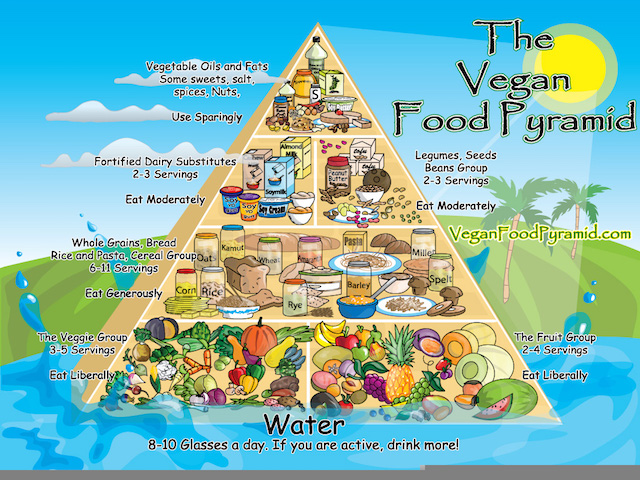
The word “vegan” has become overly politically charged and evokes strong judgmental emotions—on both sides.
I have recently seen serious battle lines drawn between those defending eating animal-based foods and those who vehemently oppose it. I stand with those who oppose it, but I propose another way to help meat, dairy, and egg eaters see the benefits in not consuming animal based foods.
It is those volatile battle lines that caused me to stop calling myself a vegan and, instead, say I eat a whole-food, plant-based diet (WFPB).
As someone motivated as much by concern for the health and wellness of human beings as I am by concern for the treatment of animals and the planet, I believe a strategy of educating and informing people about the health benefits of a WFPB diet is a good place to start.
In the process, they will be informed about the cruelty to animals and the harm done to the planet by the mass consumption of animal-based foods.
After 37 years as a vegetarian, I stopped eating all animal-based foods when I fully understood the suffering imposed on the animals that produce dairy products and eggs.
Many people who go from being a meat eater to a vegan do so primarily for ethical reasons. That is, they are deeply opposed to the suffering animals undergo to become the meat on the table. They are equally opposed to the ongoing suffering of the animals that produce dairy products and eggs.
I became a vegetarian in 1976 almost exclusively for personal health reasons. Information had begun to surface about the antibiotics and growth hormones being fed to livestock and the potential danger to humans. I was also learning about the nutritional and health implications of eating more whole foods.
There wasn’t much public information about feedlots and inhumane treatment of livestock animals back then.
My go-to source for information and recipes at the time was Diet For a Small Planet by Francis Moore Lappe, first published in 1971. I still own a copy today. That’s where I first learned how much grain it took to produce one pound of beef. And that’s where my altruism kicked in. We could feed millions of hungry people by eating less or no meat.
Not everyone starts out as altruistic when adopting a vegan lifestyle. Let’s face it, “What’s in it for me?” is sometimes a bigger motivation for people to change a habit than what’s in it for the starving person half way around the world.
This is not a judgment. This is simply true. Humans are generally motivated to act based on what they perceive will benefit them.
An article in Fast Company says, “When confronted with change, most people tune in to their favorite internal radio station: WIIFM––What’s In It For Me? That’s not to suggest that most people are selfish. It’s simply a fact that personal context is usually the first filter we use to evaluate our environment. It’s especially true when we’re asked to participate in some sort of change.”
So what is in it—personally—for people to stop eating meat, dairy, and eggs?
The Centers for Disease Control (CDC) says that, “Chronic diseases and conditions—such as heart disease, stroke, cancer, type 2 diabetes, obesity, and arthritis—are among the most common, costly, and preventable of all health problems. As of 2012, about half of all adults—117 million people—had one or more chronic health conditions. One in four adults had two or more chronic health conditions.
$2.7 trillion is spent in the United States each year on health care, and 75 percent of those dollars are spent to treat chronic diseases that stem from diet and lifestyle habits.
If people really understood that they could enjoy good health and get off of medications that are both costly and cause side effects, would they be motivated to change even if it meant giving up animal-based foods?
Not if the agriculture, meat, dairy, pharmaceutical, and medical industries have anything to do with it.
Big Pharma most decidedly doesn’t have the health of the American people in mind. There is no profit in healthy people, full stop. Seventy percent of Americans take prescription drugs—yet we have worse health outcomes than other industrialized countries.
And you can bet Big Agriculture will do anything it can to keep Americans in the dark about the food they consume and the more unsavory aspects of that consumption.
If Americans become more informed—and get angry when they learn they have been, in the words of Malcolm X, “had, hoodwinked, and bamboozled”—would they be more willing to change their diets? I think so.
As much as I want people to stop eating meat, dairy, and eggs for the sake of the animals and the planet, I almost always approach the topic from the standpoint of personal health and wellness.
What’s in it for the person I’m talking to? I recommend these three documentaries: “Forks Over Knives” (2011), “Food Choices,” (2016) and “What the Health” (2017). These are eye-opening documentaries, and in almost all cases, people are genuinely motivated to begin to change the way they eat.
The phrase, “there’s more than one way to skin a cat,” comes to mind. And yes, I realize it smacks of animal cruelty.
Author: Gayle Fleming
Editor: Travis May
Image: Joshua Wold
Copy editor: Yoli Ramazzina
Social editor: Danielle Beutell










Read 0 comments and reply